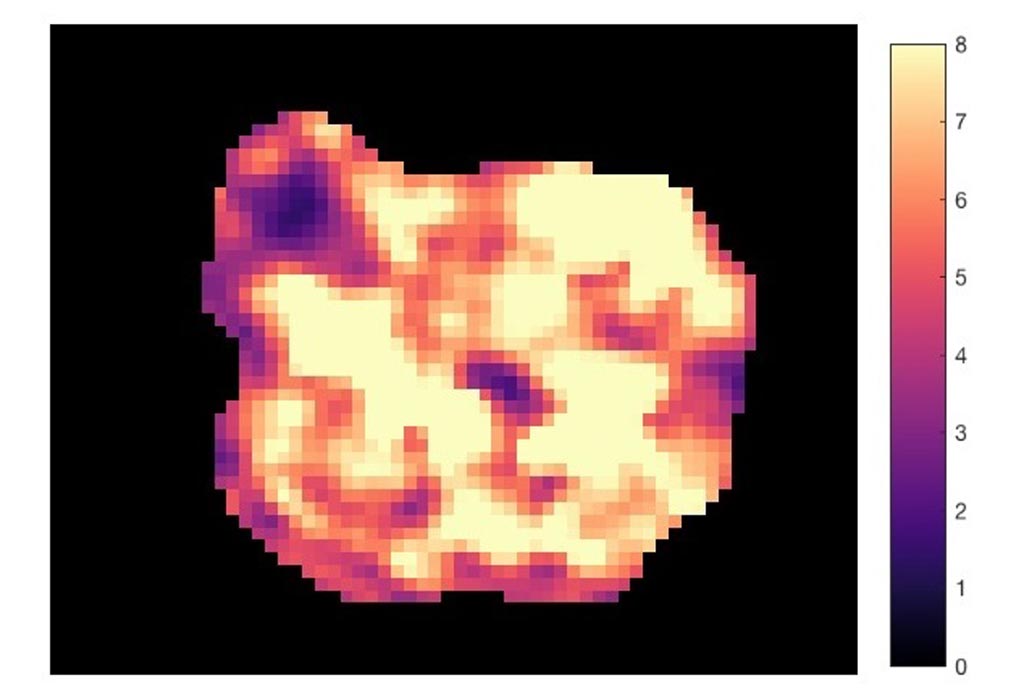MR Elastography Visualizes Tumor Stiffness and Density
By MedImaging International staff writers
Posted on 26 Oct 2019
A new study suggests that magnetic resonance (MR) elastography can noninvasively and quantitatively map the viscoelastic properties of tumors in vivo.Posted on 26 Oct 2019
Researchers at University College London (UCL, United Kingdom), The Royal Marsden NHS Foundation Trust (London, United Kingdom), and the Institute of Cancer Research (ICR; London, United Kingdom) conducted a study in mice that coupled MR elastography and computational histopathology to interrogate the contribution of collagen to tumor biomechanical phenotype in several different tumor types, including breast cancer, pancreatic cancer, medulloblastoma, glioblastoma, and neuroblastoma xenografts.

Image: A map of tumor elasticity showing the marked stiffness of a pancreatic tumor (Photo courtesy of Yann Jamin/ICR).
The results revealed positive correlations between collagen fraction and both elasticity and viscosity, but not with cellular or vascular density, and that treatment with collagenase significantly reduced elasticity and viscosity. Analysis of the extracted images of picrosirius red staining revealed negative correlations with elasticity and viscosity and positive correlations of texture with fractal dimension, suggesting that MR elastography could provide sensitive imaging biomarkers of tumor collagen deposition and its therapeutic modulation. The study was published on October 11, 2019, in Cancer Research.
“There’s a lot of research activity centered on finding new therapies designed to help anti-cancer drugs reach their target in breast and pancreatic cancers, which can be so stiff and dense that they are impenetrable,” said senior co-author Yann Jamin PhD, of ICR. “We are very excited to have found a rapid scan that can be incorporated into a current routine clinical MRI examination and can potentially monitor the effects of these new tumor-weakening therapies, and assist the development and delivery of medicines which could save or extend lives.”
MR elastography is a dynamic elasticity imaging technique that uses mechanical waves to quantitatively assess the shear modulus (stiffness) of tissues. It can be considered as an imaging-based equivalent of palpation, often used to diagnose and characterize diseases, as the mechanical properties of tissues are often dramatically affected by disease processes, such as cancer, inflammation, and fibrosis. Data about the stiffness of tissue is obtained by assessing the propagation of mechanical waves via upgraded MRI scanners.
Related Links:
University College London
The Royal Marsden NHS Foundation Trust
Institute of Cancer Research














